Summary
- Mikaela, a Fremen bartender on Salusa Secundus, plays a key role in the rebellion against imperial powers exploiting Arrakis.
- She is a member of the Sisterhood of Truthsayers, but her true loyalties and motives remain complex and murky.
- Mikaela’s character adds an unpredictable and much-needed element to Dune: Prophecy, standing out as a captivating and multifaceted wild card.
Throughout its first season, Dune: Prophecy has introduced a host of interesting new characters. There’s Desmond Hart with his mysterious powers, the ruthless Harkonnen sisters, and more. But one of the series’ most compelling characters has been mostly operating in the margins, at least until the penultimate episode of season one.
That character is Mikaela (Shalom Brune-Franklin), a bartender on the imperial planet Salusa Secundus with ties to all three of the major factions jockeying for power in Dune: Prophecy’s universe. The writers have offered hints as to her backstory and motives, but have let them mostly play in the background of the larger plot machinations. In a series where clear battle lines are constantly being drawn and re-drawn, Mikaela is a breath of fresh air: someone whose loyalties aren’t so easy to pin down.
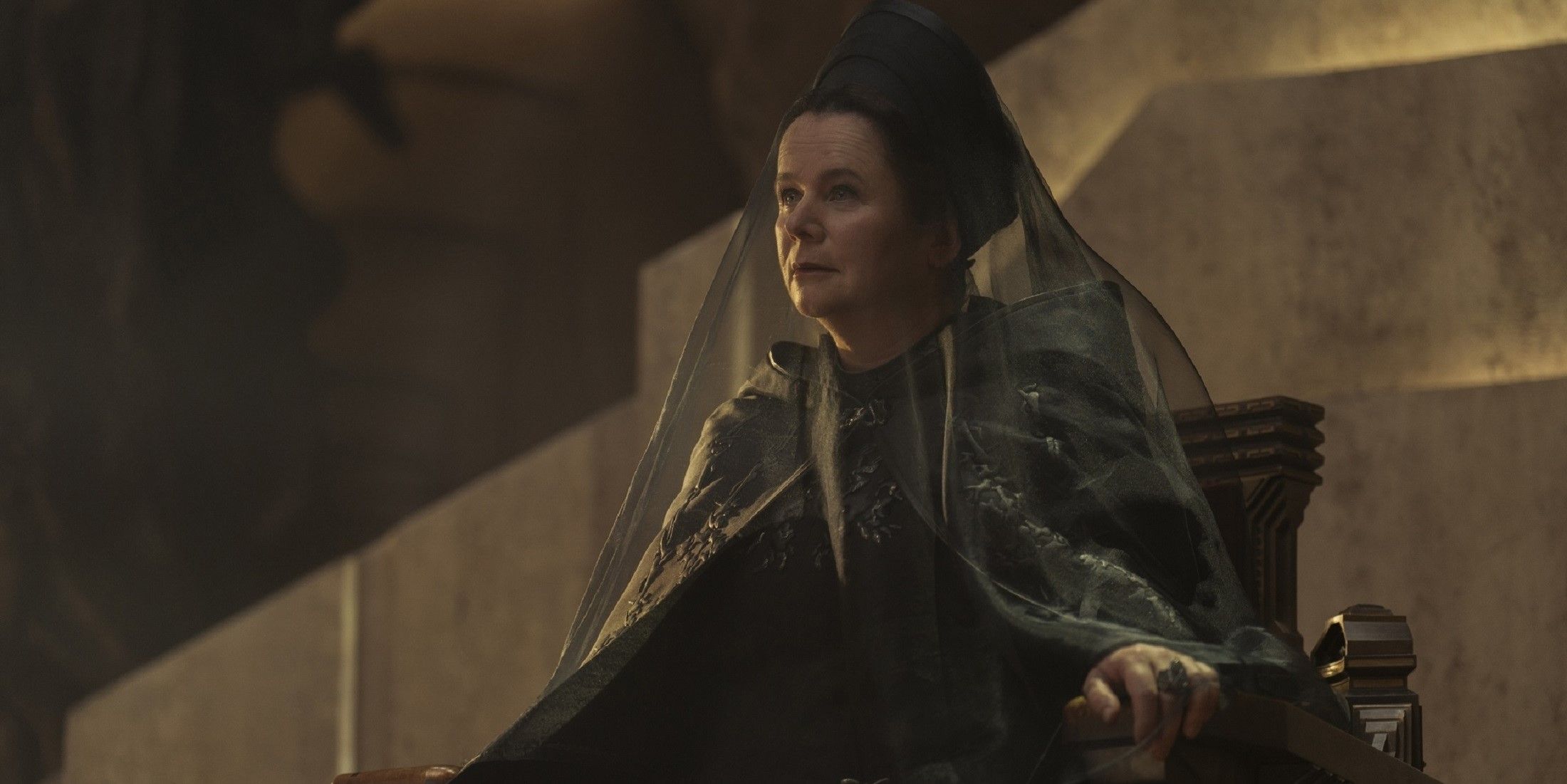
Related
Dune: Prophecy Star Emily Watson Talks The Great Tragedy Of Valya’s Life
Dune: Prophecy’s Emily Watson discusses the great loss that influences Valya Harkonnen’s entire life and every decision she makes.
Mikaela the Rebel
While she makes a living serving as a bartender on Salusa Secundus, Mikaela’s bright blue eyes mark her as a Fremen, one of the native peoples of Arrakis, the planet whose main resource has been sustaining royal bloodlines for millennia. That resource, of course, is Spice, the substance of seemingly limitless capabilities and the most valuable commodity in the galaxy. The Dune series hasn’t shown a Fremen away from their home planet, other than Stilgar’s (Javier Bardem) brief journey to the imperial home world in the first film. It’s interesting to see how Mikaela navigates a world so different from her own.
Dune: Prophecy proves that the exploitation of Arrakis for Spice is nothing new by the time Paul Atreides enters the scene. As an indigenous person from Arrakis, Mikaela would have plenty of reasons to want to see the imperial powers that exploit her home planet crumble. Thus, it makes sense why she would align herself with the rebellion that is plotting to overthrow the noble houses that control the Spice trade. She was integral in the plot to blow up the Landsraad in episode four. She’s also one of the few rebels whose cover wasn’t blown when the plot failed, after Desmond Hart and his soldiers rounded up the conspirators.
Of course, that didn’t last very long. Desmond uncovers Mikaela and the bar’s role in the “thinking machine” attack, and she barely escapes with her life in episode five. While searching the bar, Desmond uncovers the tavern’s illegal stores of Spice as well as a Sisterhood robe hidden in a barrel (odd place to hide something like that). This gives him enough evidence to connect some important dots and discover a connection between the rebellion and the Truthsayers.
Mikaela the Truthsayer
Along with playing her role in the rebellion, Mikaela is also a member of the Sisterhood of Truthsayers. This is revealed in episode two, when she meets with Valya and gives up the name of imperial Swordmaster Keiran Atreides as a rebel spy in the Emperor’s house. This action would suggest her loyalties lie with the Sisterhood, since she’s willing to give Valya the name of one of her rebel comrades, knowing that it would likely lead to his capture and possible execution.
But with Mikaela, it seems those loyalties aren’t so simple. She has more of a stake in the fight against the Imperium than anyone, given that they’ve been exploiting her home planet for generations. Her motives to keep the rebellion alive feel genuine. The Sisterhood has a vested interest in maintaining the existing power structure so that they can continue to manipulate things behind the scenes through their breeding program and having Sisters in all the great houses, so a rebellion doesn’t really suit their interests.
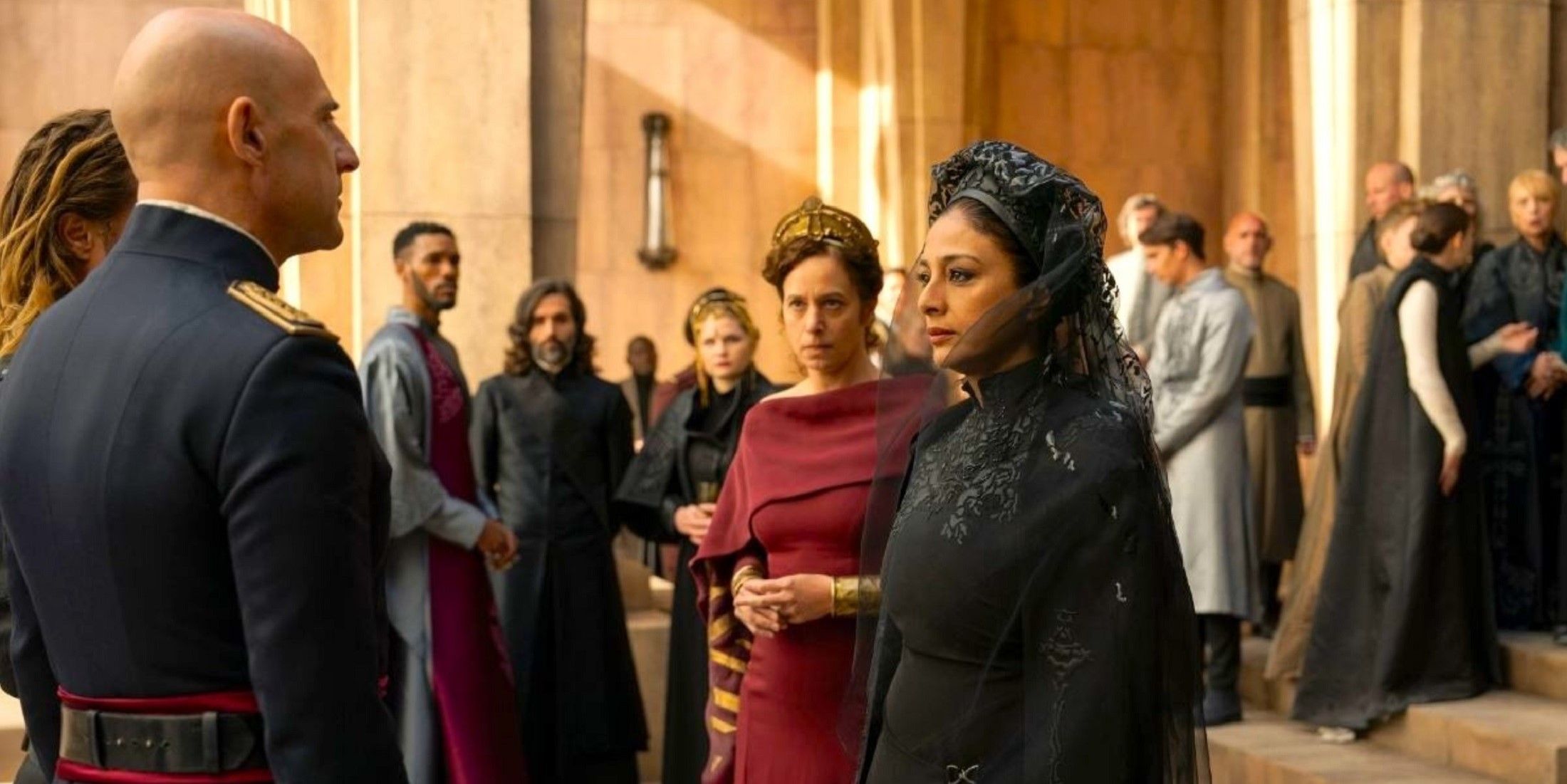
Related
Why Dune: Prophecy’s Political Story Centers Around a Weak, Struggling Emperor
At the center of Dune: Prophecy’s complex political web is Emperor Javicco Corrino, a man characterized by his indecision and reliance on outside aid.
Early in the season, Mikaela appeared to be just a double agent, spying on the rebellion for the Sisterhood in order to make sure it didn’t succeed. But as the season progressed, her motives got much murkier. She was willing to blow up her entire operation once Desmond found out the truth, hopefully killing him in the process, rather than risk capture. But when given the opportunity to return to the Sisterhood fold, Mikaela declines, and instead returns to Arrakis. Valya tries to remind her that her ultimate loyalty is to the Sisterhood, but Mikaela is unconvinced, feeling that she — and by extension, the Fremen people — are just pawns in their machinations for power.
It seems that Mikaela is still part of the Sisterhood for now, but time will tell if she truly remains loyal to their cause, or if returning to Arrakis will lead her to denounce her vows and join the Fremen cause back home. It’s possible that she’s actually a triple-agent, working against the Imperium while also trying to influence the Sisterhood on behalf of her native people. Hopefully, Dune: Prophecy will pick up with Mikaela’s story again in season two, since she’s one of the series’ most interesting and multifaceted characters. In a series that at times felt like it was just checking boxes of a sci-fi/fantasy narrative, Mikaela was something the show sorely needed: a wild card.
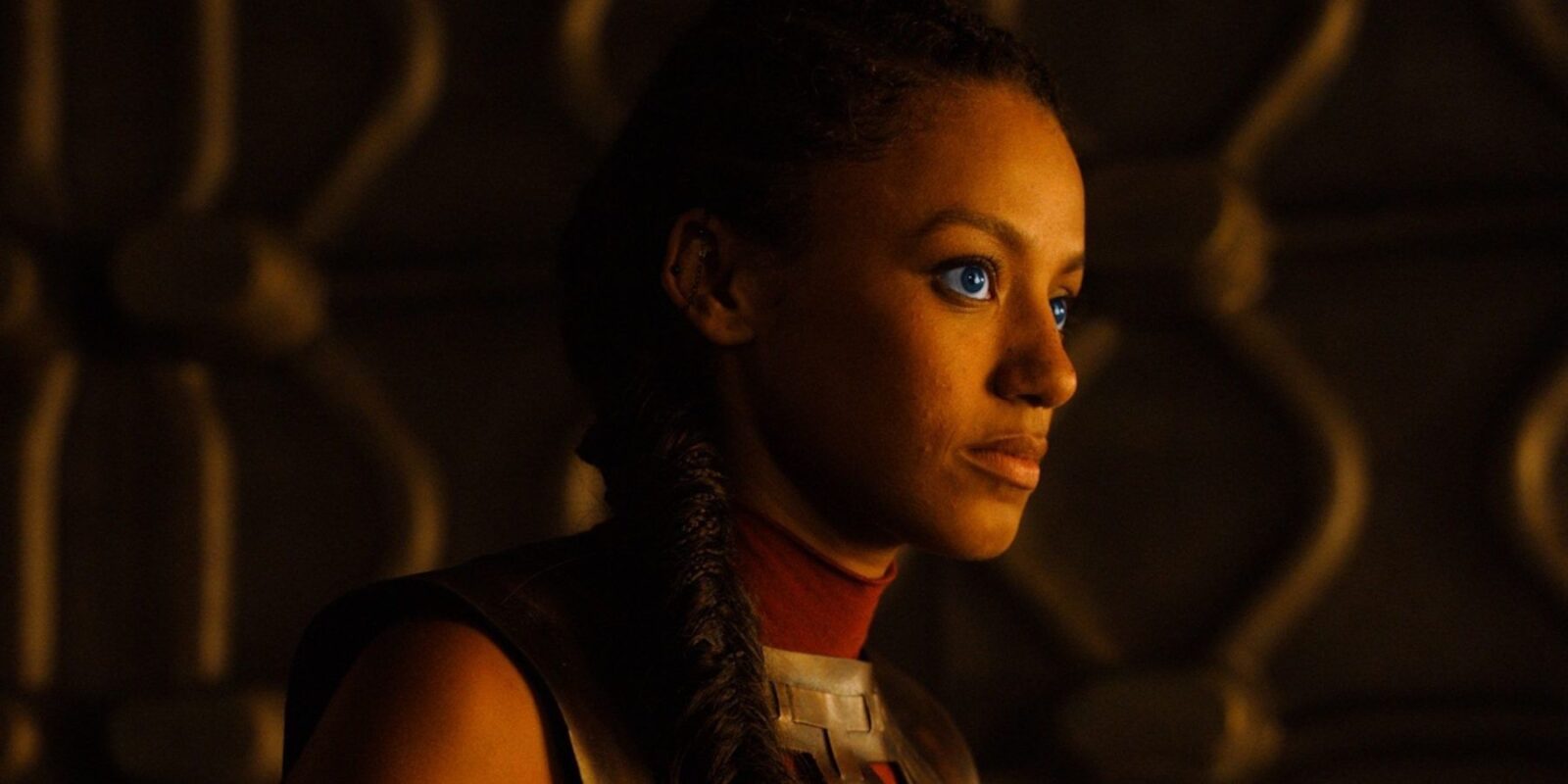

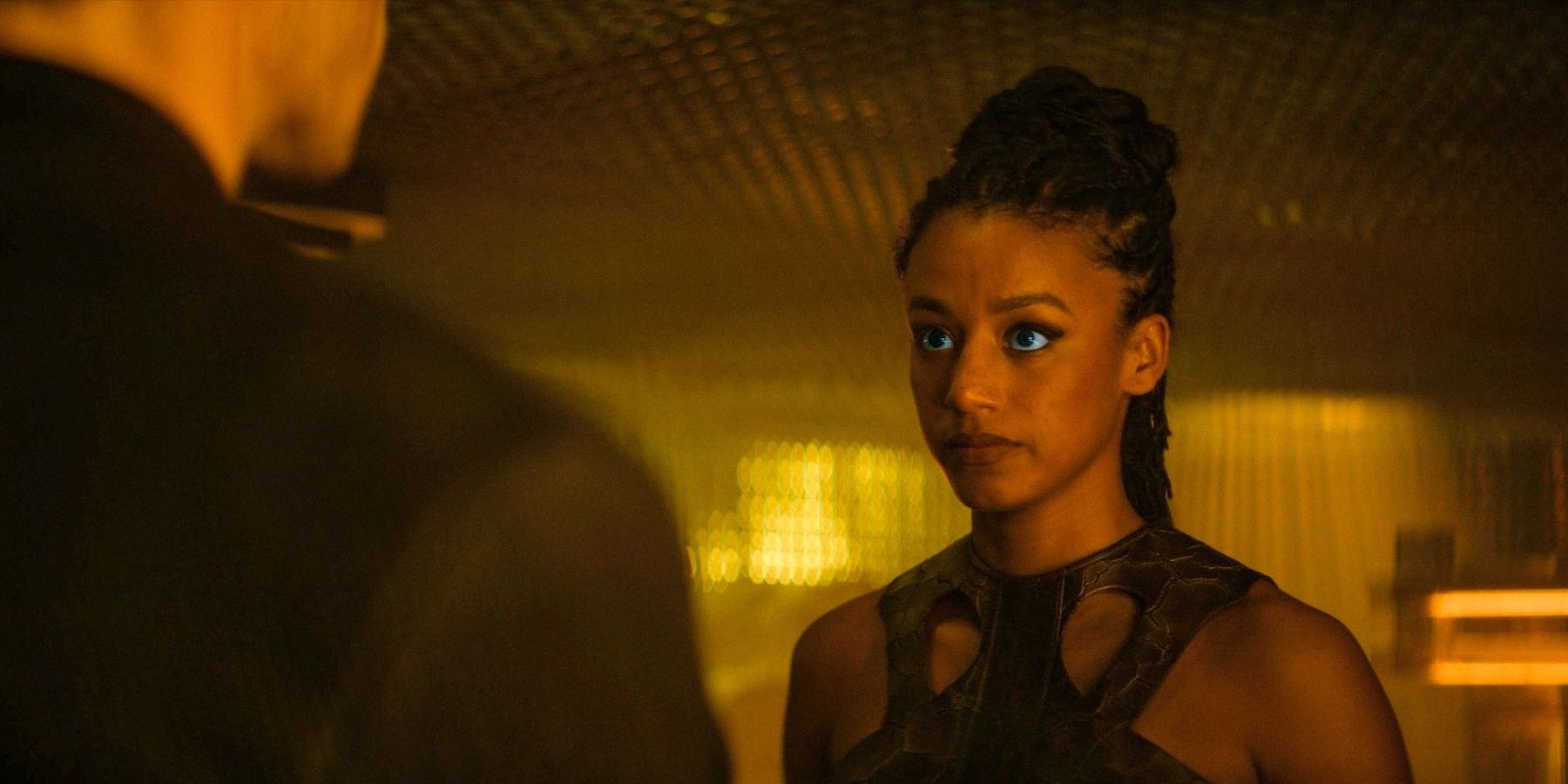
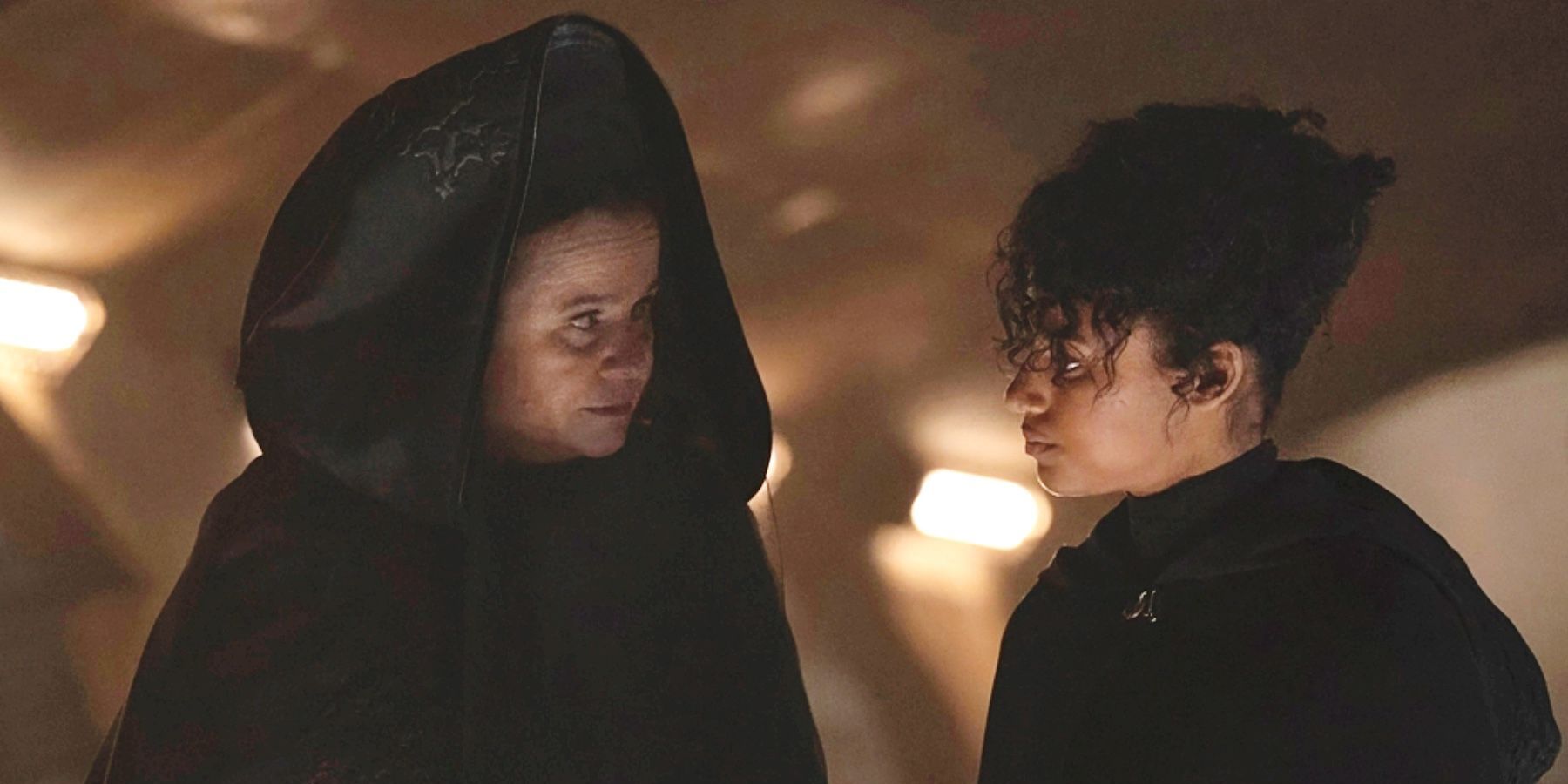
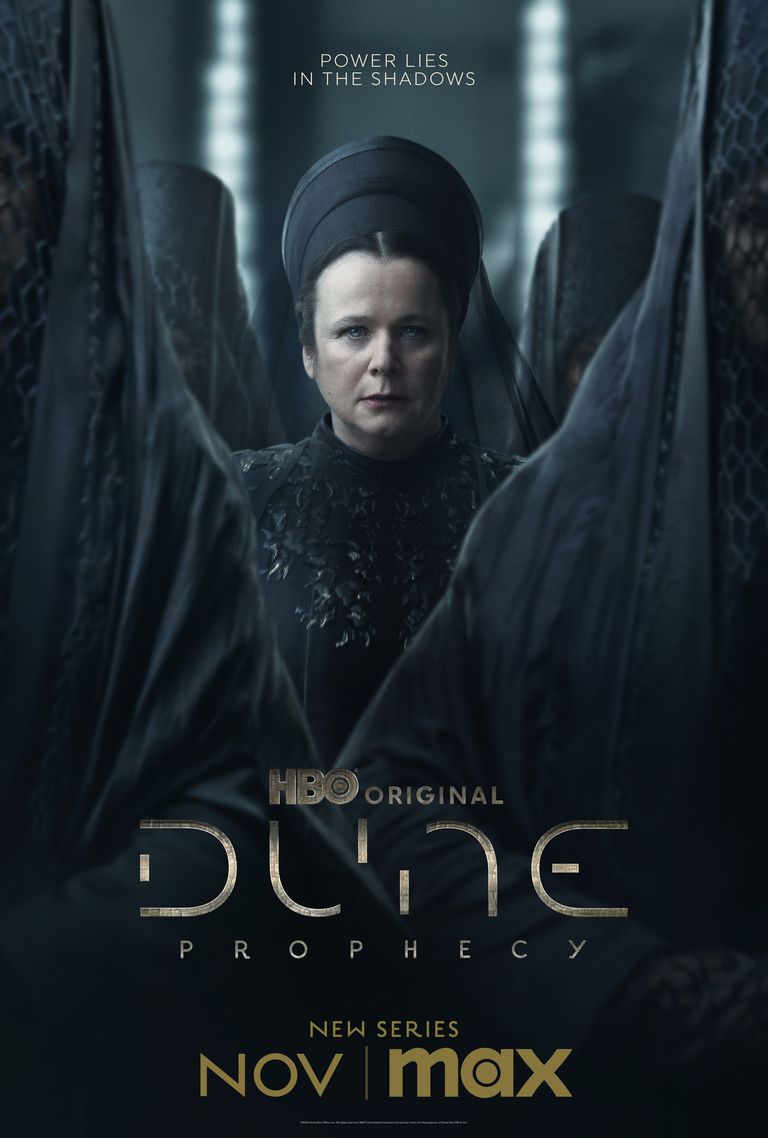










Leave a Reply